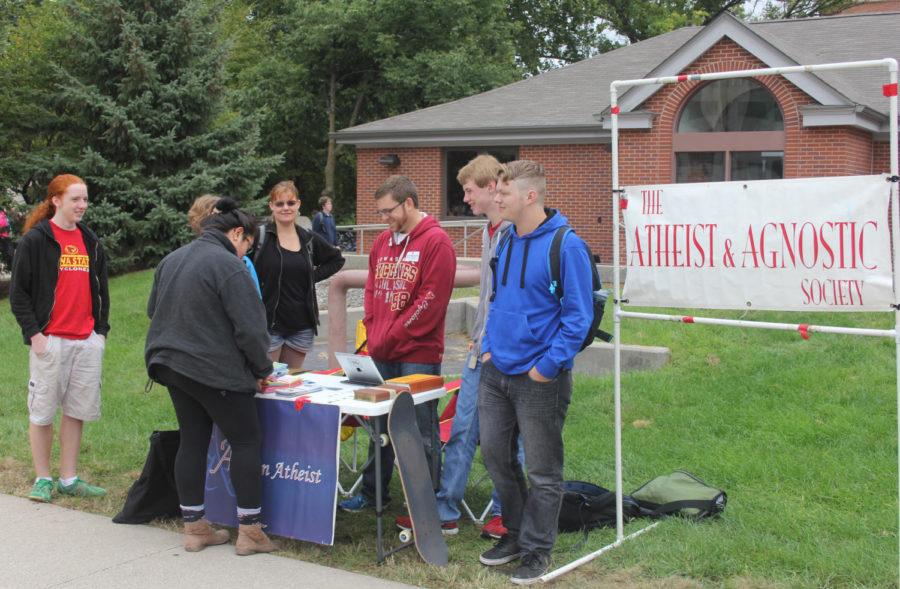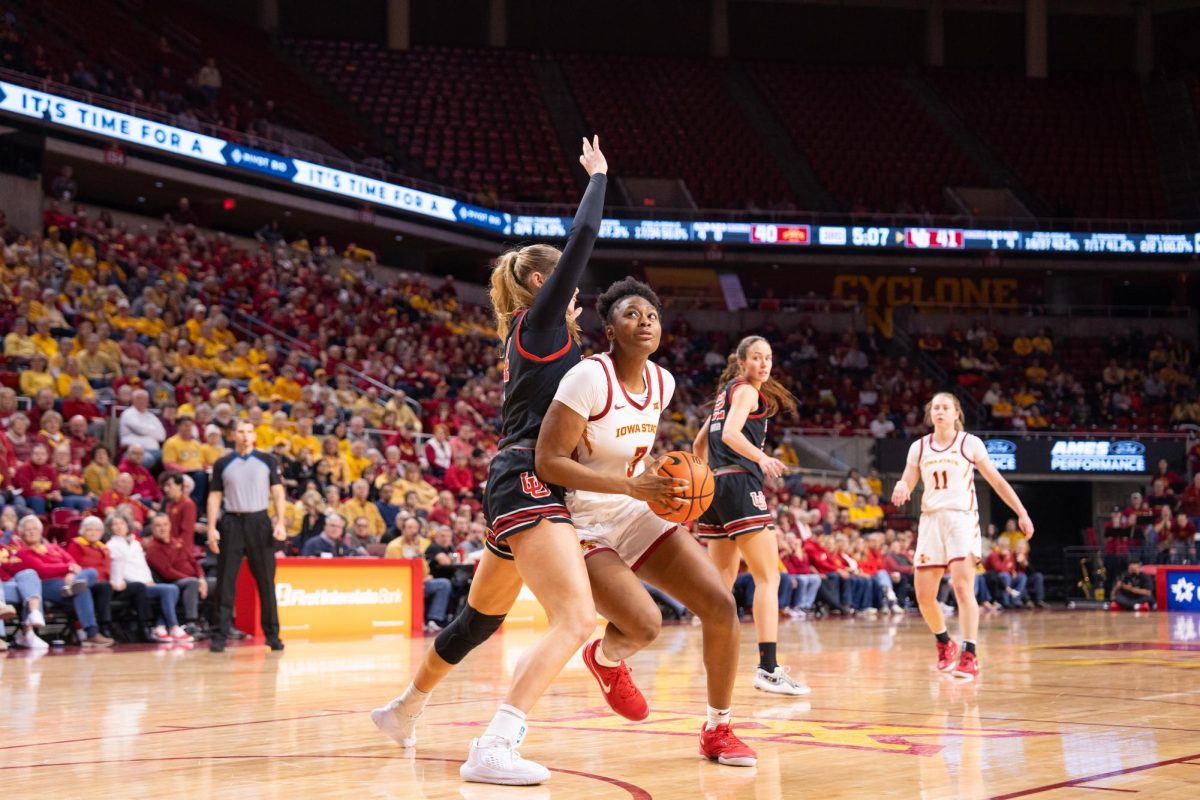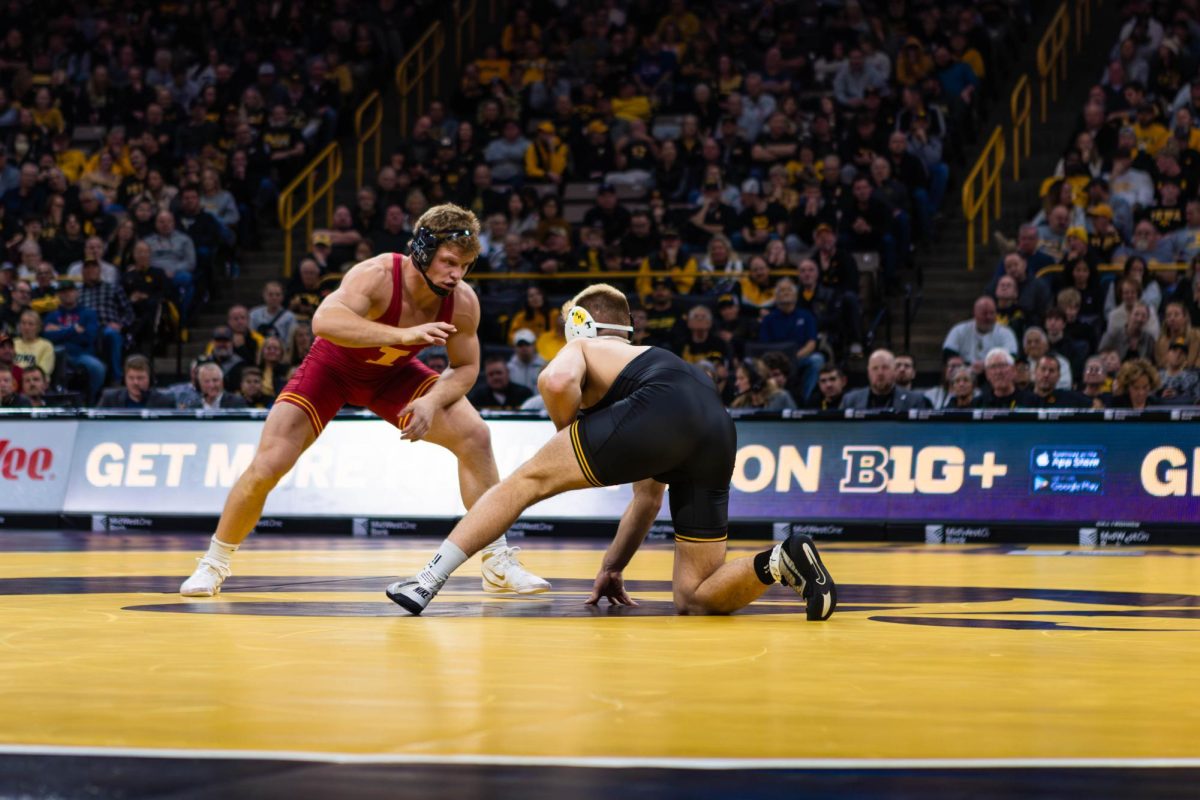Ask an Atheist
September 11, 2014
On the sidewalk between the library and the Hub, a small group of students stand at their booth answering questions and giving information to passing by students.
Every Thursday 11 to 2, the Atheist and Agnostics club sets up their booth titled “Ask an Atheist.” On the booth there are multiple pamphlets, resources, and a sign up sheet so students can receive emails about speakers and events the club holds throughout the year.
Alexandra Mielke, the president of the club and a junior in psychology, say that the group’s goal is to speak out for the atheists, agnostics, and people who are still discovering what they believe.
“There is actually not as many [Atheists] on campus as people think,” said Mielke, “Christians make up a majority of the American population, a fact I don’t think a lot of people know.”
There are 24 registered Christian groups on campus, and the Atheist and Agnostic’s club is the solo registered secular group. Christjahn Beck, vice president and a senior in political science, hopes that the group will be encouraging to others who struggle with their belief systems.
“People think we’re strange sometimes because they don’t understand how you can have a club about not believing in anything,” said Beck, “We get a lot of questions asking us what we believe.”
The group meets in the Memorial Union on Monday nights and acts as a support and discussion group for students who are Atheist and Agnostic. Throughout the school year, the group has various speakers including Dan Barker, president of the Freedom of Religion organization. The group discusses how to tell their families about their beliefs, and how to interact with people of different religion.
“I joined a couple weeks ago at Clubfest,” said Tex Nicholson, a freshman in computer science, “I really wanted to find a secular group that I could connect with. So far, it’s been really cool.”
The group has participated in events with some of the Christian organizations on campus, one of the favorites being “dunk the atheist,” a way for the group to raise money for their speakers and club events.
“We encourage debate,” said Mielke, “we want to stand out on campus as a group that isn’t harsh or demeaning.”







